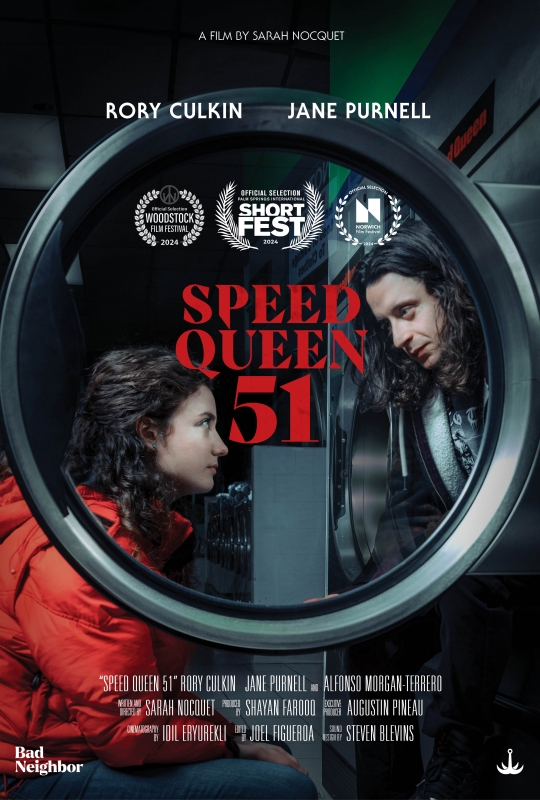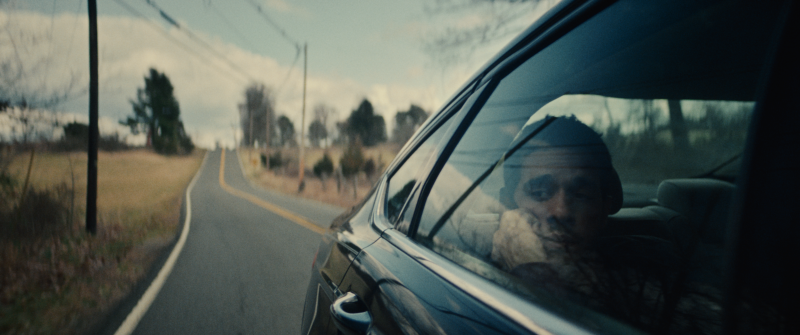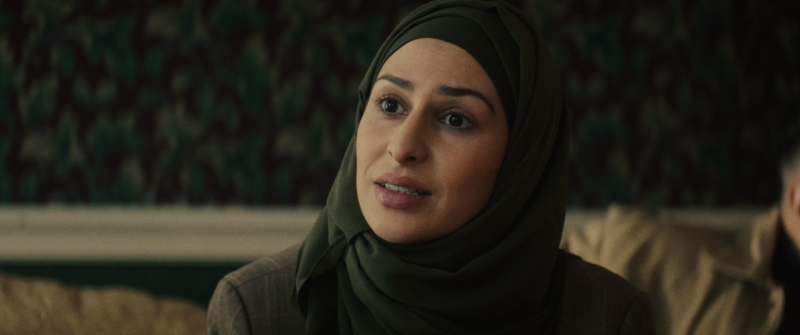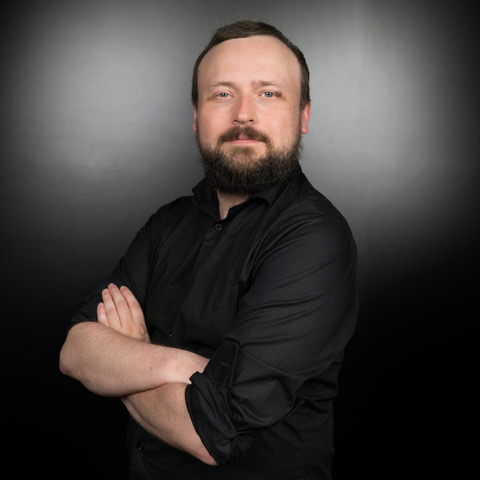|
|
||
|
Pro Tools
FILMFESTIVALS | 24/7 world wide coverageWelcome ! Enjoy the best of both worlds: Film & Festival News, exploring the best of the film festivals community. Launched in 1995, relentlessly connecting films to festivals, documenting and promoting festivals worldwide. Working on an upgrade soon. For collaboration, editorial contributions, or publicity, please send us an email here. User login |
Interview with director ANDREI KONCHALOVSKYDirector ANDREI KONCHALOVSKY, director of the Golden Globe winning film ‘RUNAWAY TRAIN’ (1986), held a master class on May 21st in Cannes. Read below interview with the director during the 65th Cannes Film Festival.
Q: Was it easier to make your second film?
Andrei: Easy? Nothing is easy. To make films is difficult anyway, even to make bad films. As a matter of fact, to make bad films its as difficult to make as good. The difference is very little and it’s not money or… It just happens to have something between the shots or not in the shots. But ‘Runaway Train’ was much more easy than the first one. The first one took three years to get the first job. I was unemployed for three years in the Sates and it wasn’t easy. Not to do anything was much more difficult than to do films… …But you know, in the earlier days, Hollywood was once open to those kind of films. There were many companies that started small and went big. Hollywood was still not in the grip of Wall Street. So many small films were made in Hollywood. Major company would do your film for $3million or $5 million. ‘Godfather’ was $6 million so they were diversified and they tried to make a hundred films. Because of small prices they had opportunity to have flops. That price has become bigger and bigger so no one has the room to make a flop. Of course if you take a film of $200 million, how many films can you do now? Five. Hollywood doesn’t need many directors. Hollywood needs a few right directors. That’s the difference.
Q: If you could have more special effects on your movie, would you take it once?
Andrei: No. You can make a very good film with a lot of special effects. You can make masterpieces as a matter of fact. I haven’t seen it yet. Someone said that in Hollywood ‘films are made by a committee not by directors’, and that’s what I think one of the important problems are on the creative side. I know that the Writer’s Guild of America wrote an open letter that they don’t have the freedom to write the script they want and they also wrote something like ‘before we were allowed to build a house now we are allowed only to put the furniture’ or something like that. It’s very important for the evolution of market and the victory of the market over the art all together. I think that’s what happens.
Q: What are you doing now? Are you working on new projects?
Andrei: I have always new projects. As a matter of fact, I have new projects, I have old projects. I want to make an adaptation of Andrei Melrose ‘The Royal Way’ that I think can be very interesting because of the two characters. It reminds me of ‘Runaway Train’ but in the jungle. I want to make Rachmaninoff’s life. I have some modern ideas about Russia and I’m doing a lot of operas and theater. I’m doing now ‘Three Sisters’. As a matter of fact, I might bring one opera in Israel next year. So, there are many things I am interested in, not only cinema. And I’m also very active in Russian philosophical or sociological circles to understand Russia.
Q: How do you find Russia now compared to when you left?
Andrei: I think Russia is worse now than in the 1980s. The trajectory of Russian society from authoritarian, frozen society through the thaw of total absolute disintegration of the Soviet Union, the disintegration of certain institutions through Putin’s attempt to put the state in some sort of order, now there is a new state unbelievably corrupt. The state today is so corrupt that I don’t know who will be able to dismantle it to make a sort of healthy society and the reason is not Putin. The reason is Russian mentality that is not politicized or socialized. We don’t have citizenship. We have population and that’s very important. Our history didn’t create citizens.
Q: This reminds me of a movie from last year: ‘Elena’ by director Andrey Zvyagintsev.
Andrei: Yes, Andrey is very talented. I think the talented people are always there. Talented people sometimes have a chance to realize themselves and most of the chances they don’t have this opportunity to realize themselves. It’s a constant battle to get your place under the sun but today filmmakers are in the trap in Russia because the Russian market is completely Americanized. Russian politics towards Hollywood. Sorry, not Americanized, but Hollywood-ized because Hollywood is not an American movie. Hollywood is a product. There are plenty of American filmmakers that make America films about reality and never get to the big screen but they are still existing and they have their own opportunity to go to Sundance and show their small films about reality or whatever. So, when in the grip of Hollywood-ized films you get an audience that doesn’t understand Russian films at all. They want to see ‘Iron Man’ or something like that. So I think for the Russian filmmaker that wants to break in, he has a dilemma. Either he has to get a first prize in a film festival somewhere or make a blockbuster that will be Americanized and think that the Russian audience will understand this language. They don’t understand the language of a film like ‘Elena’. ‘Elena’ is a film that is an art. But it gets more response in Europe than in Russia because Europe still has certain segments of the society that likes to see curious films.
Q: Would that be the same reason why a movie like ‘Runaway Train’ or a ‘Deliverance’, for example, why action movies in the past made by auteur filmmakers might be Oscar winning or Oscar worthy whereas today an action movie in Hollywood is substance-less?
Andrei: Because action movies then didn’t make a lineation from the content from the form. In the 80’s Hollywood was still open to take a risk. What do I mean to take a risk? I mean, to make a good film. Not to take a risk means to make commercial films and that’s the difference. And that’s why by form it was an action movie but by content it was a fable, it was a philosophical parable, it was a metaphor for different things. The author of ‘Runaway Train’ was Kurosawa. But then the form can be appropriated. The content now. You see, you cannot steal philosophy. You can steal the genre but the philosophy of this film is Kurosawa’s philosophy. Mostly, the relativity of good and evil and what is freedom? Is freedom inside of you or outside of you? Who is good and who is bad? Is the person who is good always right? Is the person who is bad always wrong? Etc. It’s Zen, even then and that’s why I think this film is still alive because it resounds in some kind of eternal question in the human brain for answers because we don’t have answers. And happy those who don’t have it because those who have it, are blind.
Q: You are talking about ‘Runaway Train’ by Kurosawa but not ‘The Magnificent Seven’ for instance which was a Kurosawa knockoff?
Andrei: But the Kurosawa script was different. I adapted it for American society but first of all, I consider Kurosawa one of my teachers. I was so influenced by Kurosawa. He was in my background all the time. For me, the content was as important as the form so I tried to keep the depth and tried to interpret it. It’s like if I do Shakespeare. If I try to adapt Shakespeare without also adapting Shakespeare philosophy it becomes a ‘West Side Story’, for example, which is Shakespeare without the content. It’s not ‘Romeo and Juliette’, it’s Shakespeare without content. Transcribed by Vanessa McMahon
OFFICIAL CANNES CLASSICS PRESS: RUNAWAY TRAIN CANNES CLASSICS Starring Golden Globe® winner and Academy Award® nominee Jon Voight, Academy Award® nominee Eric Roberts and Rebecca de Mornay, RUNAWAY TRAIN will take you on a thrilling rollercoaster ride of excitement and suspense. Set in Alaska, a dangerous recidivist Manny (Jon Voight) and his cellmate Buck (Eric Roberts) escape from a maximum security prison across the icy wilderness. To complete their break for freedom the fugitives hop on board a freight train. However, when the train driver drops dead from a heart attack, they find themselves trapped, hurtling at a crazy speed towards disaster... RUNAWAY TRAIN won a Golden Globe® for Best Actor in a Motion Picture Drama (Jon Voight) in 1986 and received two additional Golden Globe® nominations, three Oscar® nominations and a nomination for the Palme D’Or at the Cannes International Film Festival in the same year.
photos by Vanessa McMahon Director ANDREI KONCHALOVSKY at Cannes 10.06.2012 | Vanessa McMahon's blog Cat. : Academy Award Akira Kurosawa America Andrei Konchalovsky Andrei Konchalovsky Andrei Melrose Andrey Zvyagintsev Cannes Cinema of the United States Entertainment Entertainment Eric Roberts Europe Film Golden Globe Human Interest Human Interest Interview with director ANDREI KONCHALOVSKY Israel Japan Japanese people Jon Voight Jon Voight Juliette Next Magazine OFFICIAL CANNES CLASSICS PRESS Oscar Putin Rebecca de Mornay Romeo Runaway Train Russia Soviet Union Sundance the 65th Cannes Film Festival the Cannes the Golden Globe Today Vanessa McMahon Interviews
|
LinksThe Bulletin Board > The Bulletin Board Blog Following News Interview with IFTA Chairman (AFM)
Interview with Cannes Marche du Film Director
Filmfestivals.com dailies live coverage from > Live from India
Useful links for the indies: > Big files transfer
+ SUBSCRIBE to the weekly Newsletter Deals+ Special offers and discounts from filmfestivals.com Selected fun offers
> Bonus Casino
User imagesAbout Vanessa McMahonThe EditorUser contributions |




























